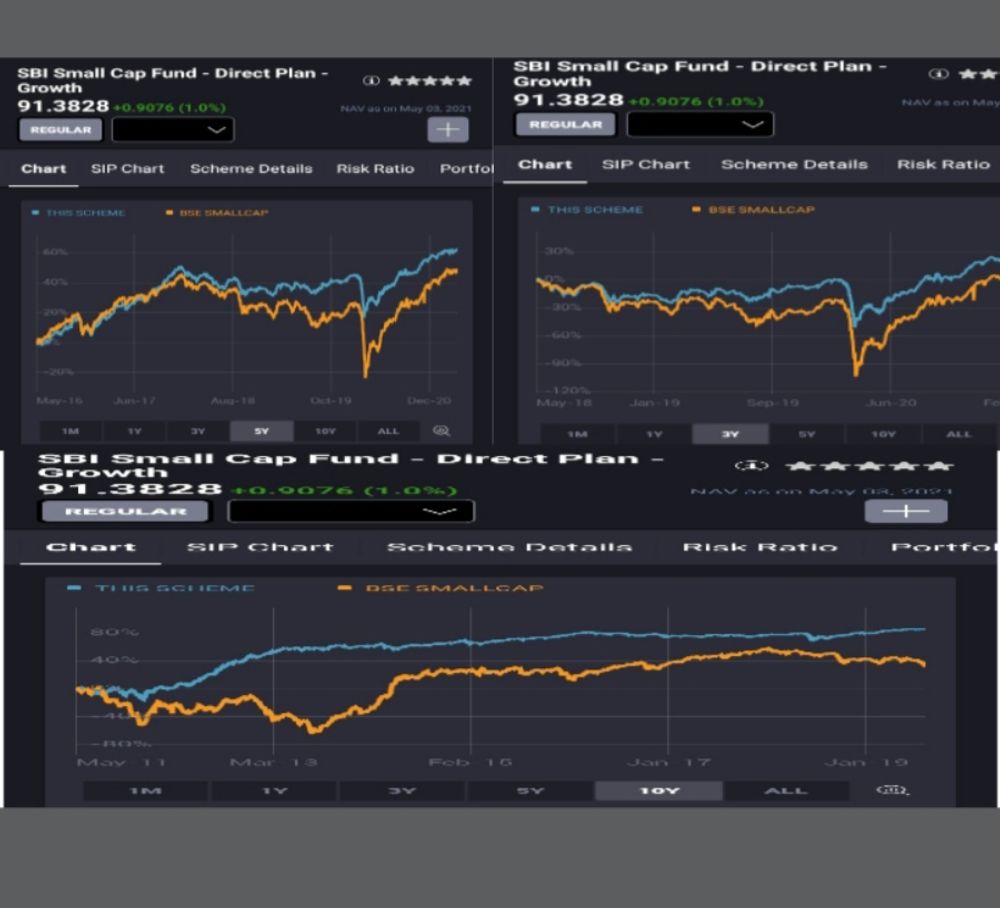

Anybody can start investing in mutual funds with as little as Hundred rupees by buying the units of a particular mutual fund scheme.
As it is said, “Building wealth is a marathon, not a sprint. Discipline is the key ingredient”. A systematic investment in Mutual Funds in the long term is bound to give rich returns to the investors.
There are different types of mutual fund schemes available in the market such as Equity funds, Debt funds, Index funds, Balanced funds, international funds, etc. But the investor should understand that risk and rewards go hand in hand with mutual funds. Higher the risk higher the return and vice-versa.
Let us try to discuss few things which an investor should consider in general before investing in mutual funds:

2. Compare with other funds in its category: check where the fund stands in its category, how other funds in the category are performing, what returns those funds are generating, what is the difference between returns in different time zones.
3. Fund Manager: it is one of the important factor investors always tend to ignore, most of the investors don't consider knowing about their fund's manager is necessary. But one should understand Fund Manager is the person who has ability to direct the relevant activities and decision making authority. So it is very important from investors point of view to know who the fund manager is, what is his qualification and experience, how the other funds in different categories where he is the manager are performing.
4. Holdings of the Mutual Fund Scheme: This becomes very important in case of equity funds because returns of the fund depends on the performance of companies it has invested in. And in case of debt funds also it is important to know what are the instruments the fund has invested in. If the fund has invested in government of India backed instruments then it is fine as the returns are assured but if the instruments are of non government companies then one should check the reputation of the company and whether the company is capable of paying interest regularly on due dates and has not committed any defaults.
5. Asset under Management (Scheme Size) : In case of Debt fund higher the size of the fund better the returns would be, because higher Asset under management ensures lower expense ratio and helps in proper allocation. In case of Large cap equity funds scheme size is less relevant it can be considered good for investing as long as the fund is generating positive returns consistently. Lower scheme size would be better for small and mid cap funds because higher scheme size leads to difficulty in allocating as the scope for investments in this category is limited.
6. Expense Ratio: it is the amount required to run a mutual fund. It includes management fees, consultancy fees etc. Concentrating on the expense ratio is very much necessary because higher expense ratio like 2-3% can undermine the performance of a mutual fund. Expense ratio of <1% can be considered good.
7. Ratings: check the rating of the fund given by various agencies like CRISIL, Morning Star, Value research etc. This is the most common way to judge a mutual fund because these agencies rate the fund based on different parameters.








